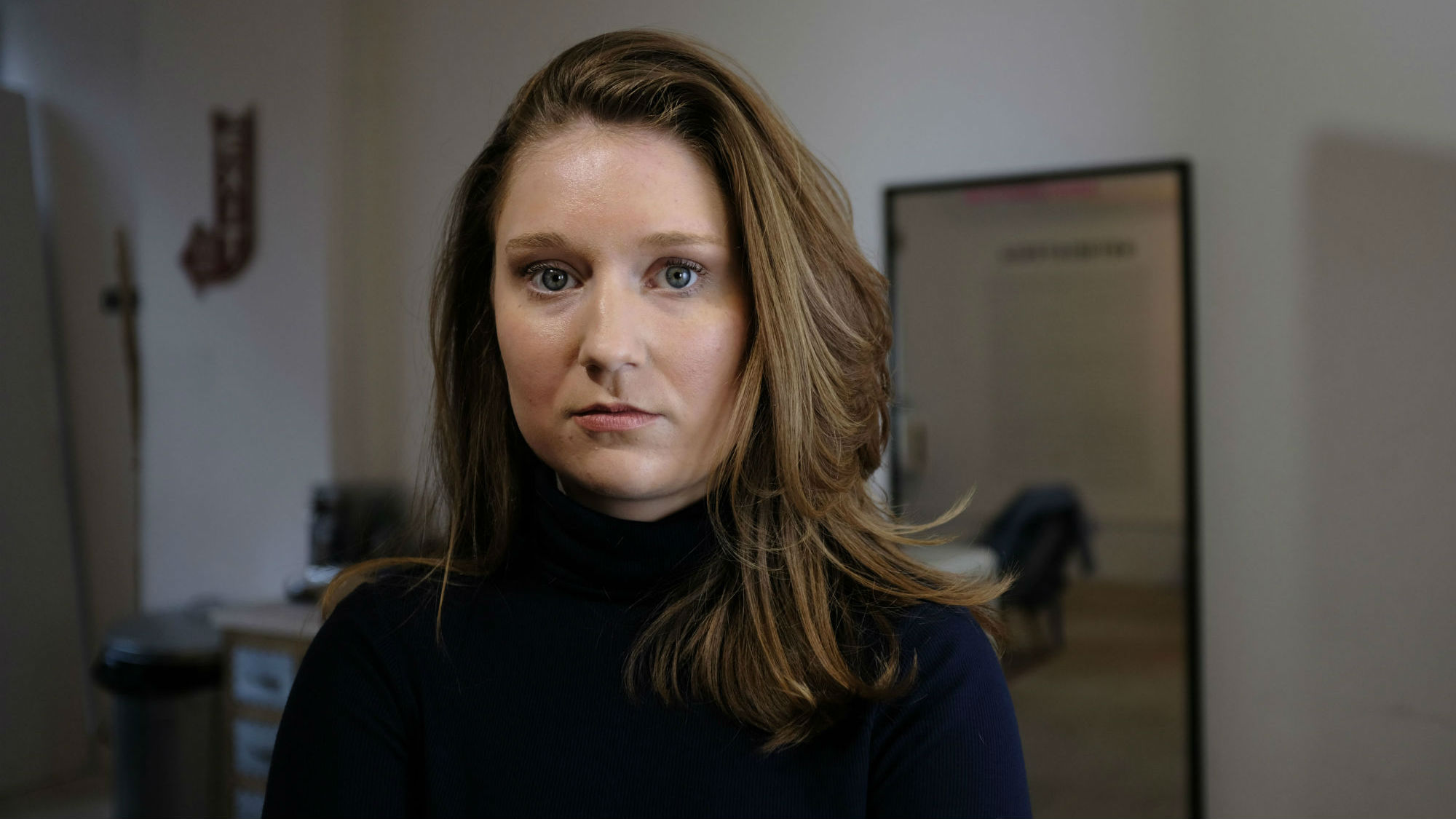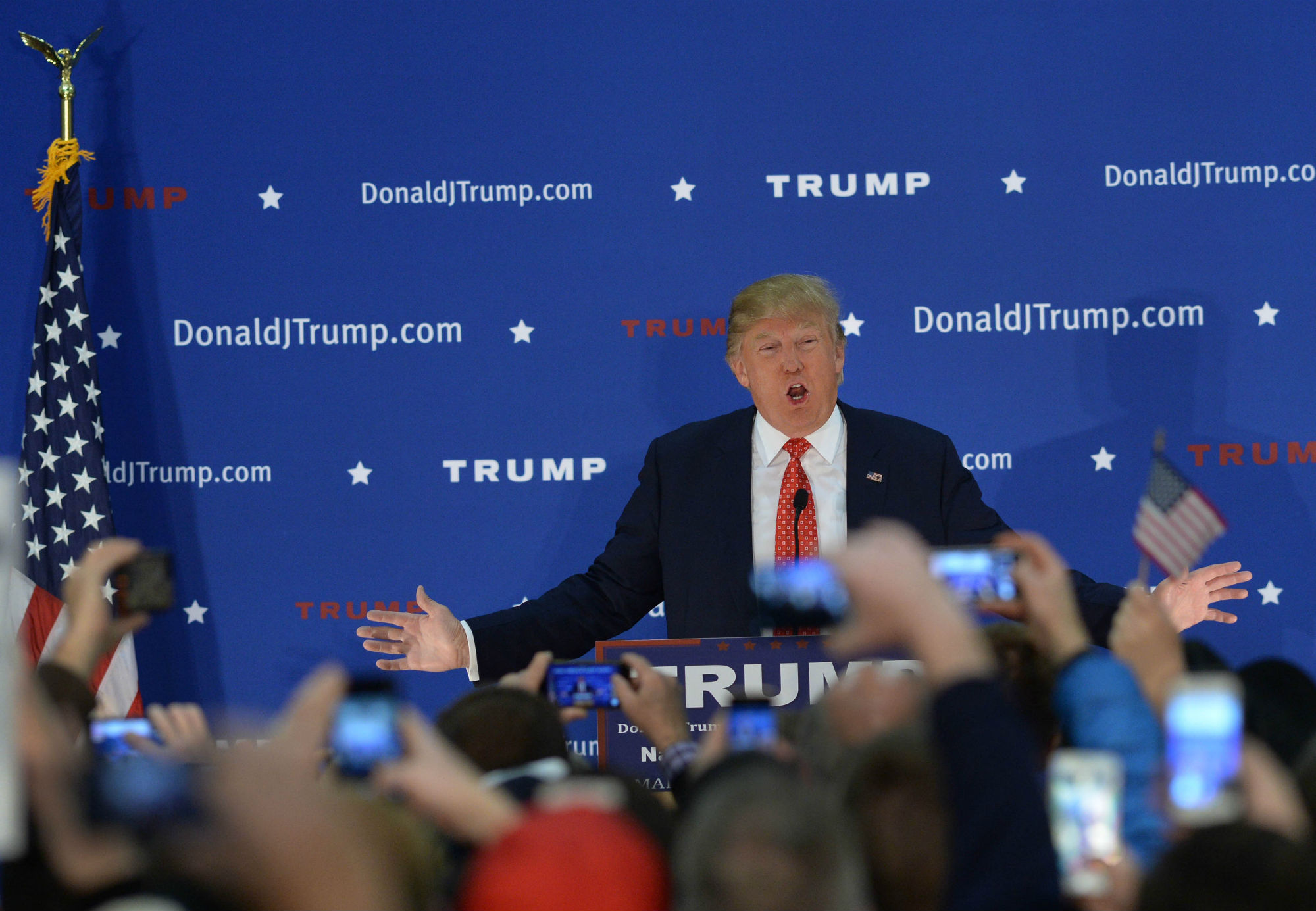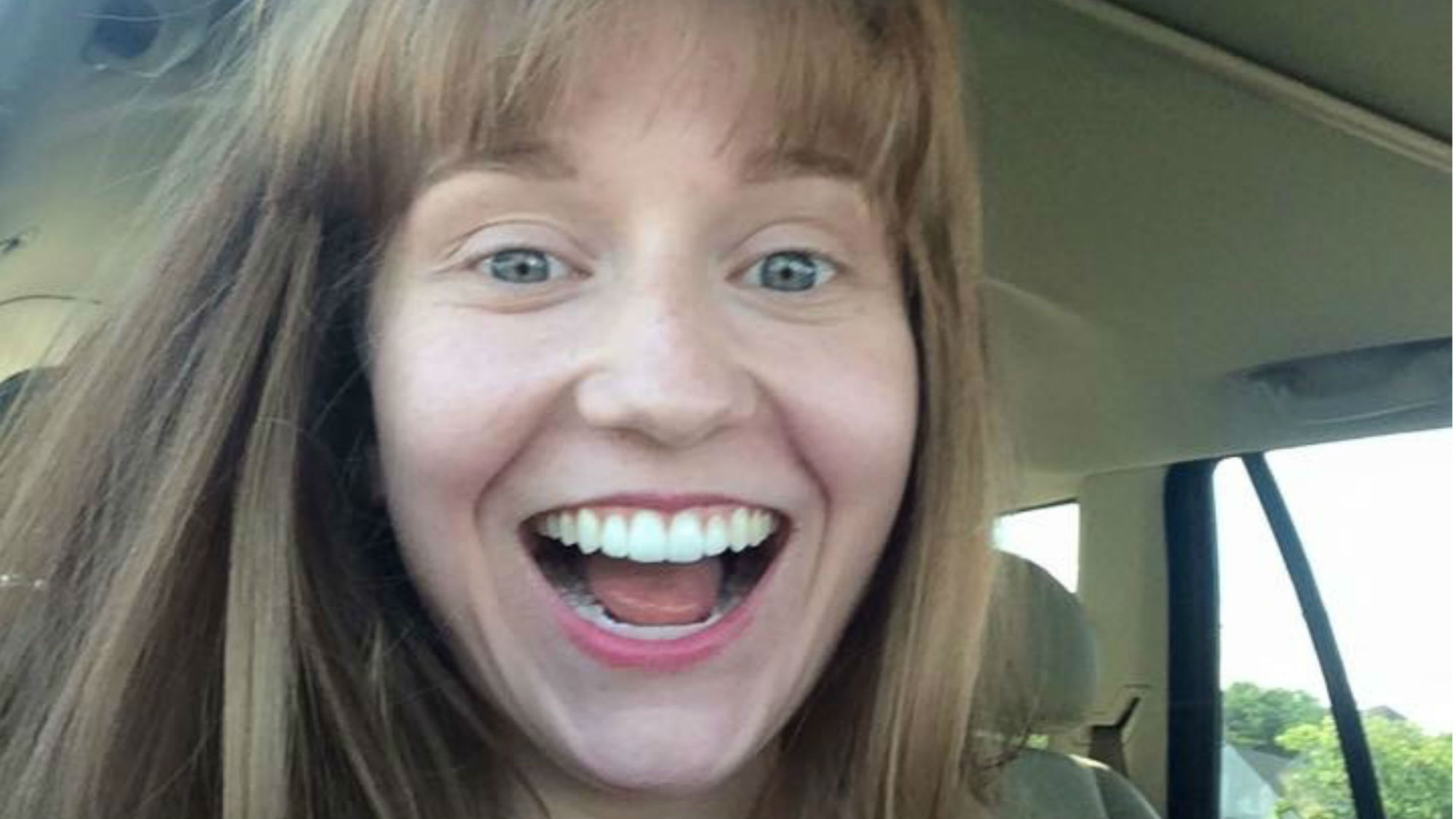'I was cyberbullied after Trump attacked me on Twitter'
When President Trump targeted 18-year-old Lauren Batchelder on Twitter after she questioned him about women's rights at an event, her life became a living nightmare. This is her story

Celebrity news, beauty, fashion advice, and fascinating features, delivered straight to your inbox!
You are now subscribed
Your newsletter sign-up was successful
When President Trump targeted 18-year-old Lauren Batchelder on Twitter after she questioned him about women's rights at an event, her life became a living nightmare. This is her story
Lauren Batchelder was 18 and just a couple of months into university when she decided to attend a political campaign event in her home state of New Hampshire in October 2015, where Presidential candidates were speaking ahead of the 2016 US election. During the event, Lauren, now 23, asked future President Donald Trump a question about women's rights - and then her life changed forever.
Trump targeted the young American on Twitter and for weeks and months after Lauren endured merciless trolling, death threats, rape threats, and even received excrement through her letterbox.
Five years later, Lauren has decided to speak about her ordeal in BBC documentary Trump in Tweets. Here, she opens up to Marie Claire about the toll cyberbullying had on her life, what Trump is like in person and what social media companies need to do to tackle this ongoing problem.
How were you able to get picked for a question?
Everyone was raising their hand to be picked and I was like ‘Mr. Trump! Mr. Trump!’ I didn’t think he would turn around, but he did and he picked me.
What did you want to ask?
Celebrity news, beauty, fashion advice, and fascinating features, delivered straight to your inbox!
I was worried about his views on women – in particular our rights and not supporting abortion. I saw him as someone who didn’t necessarily respect women and the summer before I was sexually assaulted. I felt a lot of anger and emotion I kind of used him as a stand-in for my rapist.
Can you describe what it was like being in his presence…
He just loved the spotlight. He was totally enjoying all the attention. He had this great stage presence compared to the other candidates, where he just felt so comfortable. It was really fascinating to watch.
What happened after you asked the question?
He said, ‘I really shouldn’t have picked you’, before going on to say he 'respects women incredibly'. When I left the event with a few friends from college [university], news media were already reporting ‘girl taunts Trump’. I never had any expectation about what was going to happen the next day.

The future President of the United States tweets you…
He wrote, 'The arrogant young woman who questioned me in such a nasty fashion was a Jeb staffer! HOW CAN HE BEAT RUSSIA & CHINA?' What he meant by that was I had spent time working for Jeb Bush, one of Trump's political rivals, because I was incredibly passionate about politics. But I think it's very obvious that I wasn't a plant because Jeb Bush is catholic, and he is against abortion. Why would the campaign send someone in to ask a question about a woman's right to choose? It just doesn't make sense.
In the days, weeks and months that followed, you endured intense cyber bullying. What did some of the tweets say?
‘You’re so ugly, ‘you are too fat’, ‘you’re never going to get married’. At one point my name was even trending on Twitter. Then the comments, messages and letters started to take a more sexual tone – a man called my phone and asked me to give him a blowjob since I was ‘such a slut’. Another time someone sent me an audio link where men were saying they wanted to masturbate all over my photos. One person pooped in a box and mailed it to me from California. It truly felt like an out of body experience. And it just got worse and worse and worse.
Who was doing this?
Mainly adults, there were also a lot of fake accounts, so it’s hard to know for certain.
Did you ever reply to comments?
No, but I also didn't shut anything down and I should have. There were thousands and thousands of awful things being thrown around and I couldn't stop looking.
How did the cyber bullying affect you?
For the longest time I couldn't take a photo of myself or be in any. I felt so much loathing and self-hatred. I didn't want to look in the mirror. For a couple of years after, I hated myself, because I’d been called ‘fat’ and ‘ugly’ so many times. The whole experience was really detrimental to my mental health.
Was there a particular time when you really weren't in a good place?
Yes, I almost dropped out of school. There were a couple times when I definitely wanted to die. I just wanted to be a completely different person. I would just sit in my bed all day. There was anxiety, depression. It was a dark time.
What was your family’s reaction to this ordeal?
My parents and younger sister were shocked, and they couldn’t just say to me, ‘Don’t worry, don't think about it,’ because it was on the internet. It was always there to be seen and accessed. I had friends who carried me through but equally a lot of my friendships were damaged by this.
Are you a Democrat or Republican?
I was raised in a really conservative household, so I started off as a conservative. When I got to college [university] I realised it just was not who I was at all. I’ve definitely become a Democrat when it comes to the party’s beliefs and standards it upholds.
How did you eventually get to a place where it wasn't affecting your life?
Lots of therapy. Talking with professional people. I was finally able to close that chapter and take a photo again.

Do you feel these huge social media platforms should intervene more when someone is communicating a potentially dangerous tweet, or do you see the other side, that freedom of speech is important to protect?
In America we like to think that freedom of speech is freedom of consequences, and that’s really not how it works. I do think that social media companies need to get involved. Especially when they’re catering to teenagers.
I remember there was this one account - and it’s still out there – filled with a group of people who talked about how much they hated me. I kept getting notifications and I kept reporting it on Facebook, but I was told it didn't violate any of Facebook's policies.
I feel companies should focus on prevention, not aftermath. It’s too late if a teenager has killed themselves because of cyberbullying, you’ll never get them back.
What could the companies do?
Plenty. Firstly, they could be watching for more trigger words. If someone tells someone ‘I want you to die’, the comment should immediately be taken down. And they should be more responsive when people are reporting these messages that are potentially harmful to them.
Finally, they should implement prevention programmes. People who are cyberbullied are scientifically 1.9 times more likely to die by suicide, but that's also similar for the cyber bullies. They are 1.6 times more likely to kill themselves, because many of them have been traumatised or experienced suffering themselves. We’re not going to be able to stop cyberbullying without helping people’s mental health. And these companies have the money and the resources. So why not help?
Has this experience changed your relationship with social media?
I still like using Twitter. I try and use my voice for good.
What’s your advice to teenagers being cyberbullied today?
Firstly, please understand it does get better. At the time it feels like it’s never going to end, but it does. The hurt does go away. The second thing that’s really important is to talk to people – friends, family, a therapist. Then you are more likely to not have a breakdown.
Should you stand up for yourself if you’re being cyberbullied? Or does it make matters worse?
I think generally speaking the best thing to do is to just leave it. However it can be incredibly empowering to stand up for yourself. If this happened again, now I am older, I would definitely say something. I’m an older, stronger person now.
Do you still attend therapy now?
I haven't in a while, but it’s on speed dial should I want to talk.
Did this experience shape what career you wanted as an adult?
Yes. I’m still really interested in politics and I'm currently in the process of getting ready to start applying to law school. I want to be a Human Rights lawyer and help as many people as possible.
What is your take on Trump’s leadership over the years?
I'm trying to find the positives. But I do recognise that other presidents before Trump haven’t fixed our issues like free healthcare and American children living in poverty. However, in my opinion, Trump has exacerbated everything. He’s fuelling racism and only cares about himself. If this wasn’t true, our coronavirus cases would be a lot lower.
What is the mood like in America, following the Black Lives Matter protests?
Racism is part of America’s history and it permeates every part of our society today. What is different now is people are listening and saying, ‘Okay, what can I do?’ Hopefully it lasts.
What’s the biggest change you would like to see for women in America?
I'm passionate about making sure that every woman has the right to choose what she can do with her body.
Trump is up against Joe Biden. Both are older, white men. Would you like to see more diversity in powerful positions?
I would love to see a female president. And I would especially love to see more people of colour in power. We've had enough of the old white man. We're just we're not getting there. Let's experiment a bit. Let's change it up.
Do you believe Trump can change?
He has a choice to be a completely different person. Do I think that's going to happen? No, but I believe that anyone can become a better person.
Did you ever hear from Trump again?
No. Radio silence.
BBC Three's Trump in Tweets is available on BBC iPlayer
Olivia – who rebranded as Liv a few years ago – is a freelance digital writer at Marie Claire UK. She recently swapped guaranteed sunshine and a tax-free salary in Dubai for London’s constant cloud and overpriced public transport. During her time in the Middle East, Olivia worked for international titles including Cosmopolitan, HELLO! and Grazia. She transitioned from celebrity weekly magazine new! in London, where she worked as the publication’s Fitness & Food editor. Unsurprisingly, she likes fitness and food, and also enjoys hoarding beauty products and recycling.